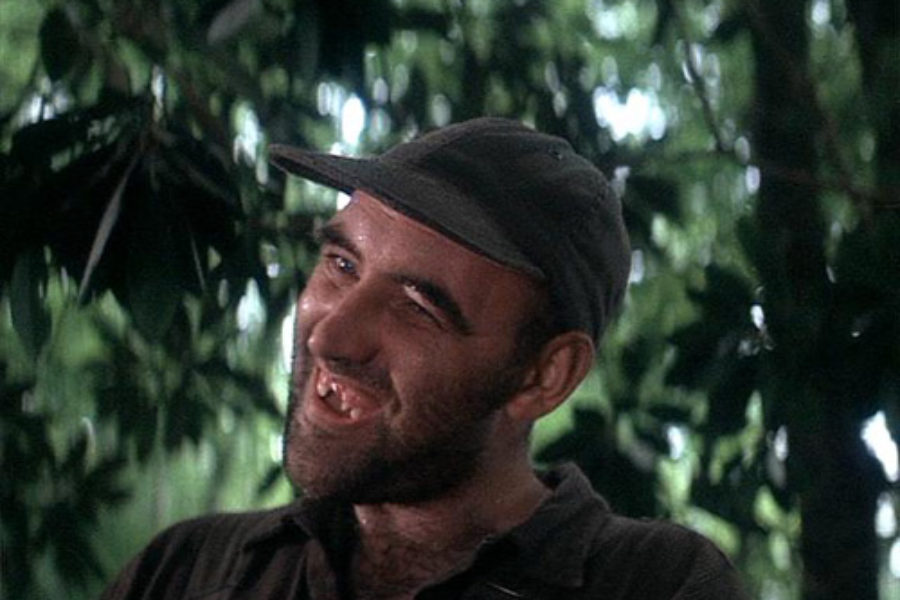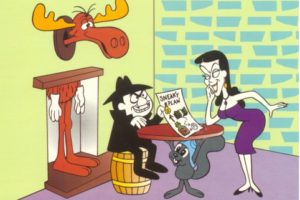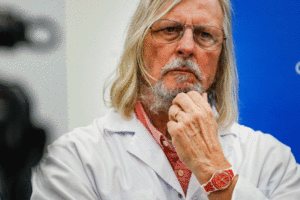In a desperate effort to squeeze political advantage out of the Special Counsel’s report exonerating Donald Trump and his presidential campaign of conspiring with Russia to affect the outcome of the 2016 election, Congressional Democrats have subpoenaed Robert Mueller to testify before the Oversight and Judiciary committees of the House of Representatives. They apparently believe that Mueller’s testimony will further their impeachment narrative by drawing public attention to those portions of the report interpreted by some partisans as demonstrating that President Trump obstructed the investigation of his non-conspiracy with Russia.
Quite understandably, Congressional Republicans have been slapping their foreheads in joyous disbelief at the Democrats’ decision to expose Mueller to cross examination by the minority members on those committees. Mueller, his band of angry Hillary Clinton acolytes and their innuendo laden report certainly have many glaring vulnerabilities that experienced cross examiners can exploit to the President’s benefit. But before the President’s supporters get too carried away at the happy prospect of Mueller squirming, sweating and ultimately going catatonic under the relentless questioning of avenging House Republicans, a few words of caution are in order.
First, cross examination is at once an art and a science subject to certain rules that must be followed in order for it to be effective. Unfortunately, most members of Congress are terrible questioners and even worse cross examiners. They tend to ask sloppy, convoluted and easily evaded questions with little follow up. It’s not their fault or even a part of their job description. It’s just the way it is.
Second, the committee format which limits questioning by each member to a mere five minutes makes extremely difficult laying the necessary foundation of any cross examination which is the meticulous and comprehensive question-by-question process of pinning down the witness and closing off all rhetorical escape routes before the questioner can go in for the kill. This process is difficult even for experienced trial lawyers who are not faced with an arbitrarily brief five minute time limit.
So, how should the Republicans approach Mueller? Here are a few suggestions.
Not all cross examination need be destructive or calculated to undermine the witness. In fact, if a witness has favorable information to impart, that should be elicited up front before the questioning becomes contentious.
For example, the Mueller report exonerates the President on the charge of conspiracy with Russia. Selected passages from the report which make that point should be read by the questioner to Mueller and the questioner should follow the reading of each passage by asking (a) did I read that correctly, (b) in preparing and drafting the report did you and your colleagues take care to have the report accurately reflect your findings, and (c) is the passage that I just read the truth, the whole truth and nothing but the truth? What’s Mueller going to do? Refute his own work product?
As for the claim that the report demonstrates that the President obstructed justice, the temptation for Republicans will be to get down into the weeds and mud wrestle with Mueller over the report’s loaded phraseology. They shouldn’t and they don’t need to do it.
There is an old maxim among trial lawyers about cross examination: Never wrestle with a pig. You both get dirty, and besides the pig likes it. So, instead of parsing words, stay out of that bog and go for the big picture starting with the fact that the special counsel neither charged Trump with obstruction nor made a finding of obstruction which could be acted on once the President leaves office.
Then the witness should be asked about Team Mueller’s investigative statistics: 2,800 grand jury subpoenas, 500 search and seizure warrants, 230 orders for for communications records, 50 pen register orders, 13 requests to foreign governments, interviews of approximately 500 witnesses including almost 80 before the grand jury. After reading each statistic, the questioner should ask whether the White House or anyone acting on its behalf opposed or attempted to block that effort. For example, as to the 500 grand jury subpoenas, did the Trump administration either assert executive privilege or move to quash a single one? Was executive privilege asserted in regard to any of the 500 witnesses? Did the White House produce over one million documents? Did it assert executive privilege or attempt to withhold any document requested? Since the answers to these questions are a matter of public record and favorable to the President, Mueller will have a difficult time evading truthful and helpful responses.
To dramatically ram home the full extent of the Trump administration’s transparency and cooperation with Mueller’s investigation, the minority members should play excerpts from the interview of John Dowd, the President’s attorney, which was conducted shortly after the Mueller report was released.
When Dowd was interviewed on Fox News, he laid out the Presidents’ strategy and marching orders to his lawyers in their dealings with Team Mueller and discussed the claim that Trump had ordered Mueller’s firing.
On Fox and Friends, host Steve Doocy asked Dowd, “When did President Trump say go out there and fire Mueller?” Dowd responded as follows:
“He never did. I was there at the same time that the [Mueller] report says that [White House Counsel Don] McGahn mentioned this, and I was assigned to deal with Mueller, and I briefed the President every day. And every week I saw Mueller or [Assistant Special Counsel James] Quarles for eight months.
“At no time did the President ever say, you know, John I’m going to get rid of him [Mueller], Don [McGahn] is not going to do it.
“It was just the opposite. Here’s the message the President had for Bob Mueller for me to carry:
“One, you tell him that I respect what he’s doing.
“Number two, you tell him he’s got my full cooperation.
“Number three, get it done as quickly as possible.
“And, number four, whatever else you need, let me know.
“That was always the message, and that’s exactly what we did. And, as you know, we produced everything without a document missing, without a lie. Can you imagine in Washington someone without a lie?”
The tape should be paused and Mueller should be asked if John Dowd delivered that message. Mueller may confirm or deny Dowd’s version of events. But using the tape to cross examine Mueller will give Dowd’s remarks a powerful impact and place Mueller in the difficult position of either agreeing with Dowd or getting into a swearing contest against a widely and highly respected pillar of the bar and a legendary alumnus of the Justice Department.
Then the questioner should play the next part of the tape in which Doocy asks about the President’s Tweets calling the Mueller investigation a witch hunt and Dowd replies as follows:
“I talked to Bob [Mueller] about that, and he said, ‘I understand. He has to do that for political reasons.’
“One time, early on, Mueller said, ‘I don’t want to scare off witnesses.’
“I said, ‘Well, I’ll tell you what. The President and I will make sure we’ll say publicly [to] cooperate with Bob Mueller.’ And we did, early on, so that was it.”
At that point the tape should be paused and Mueller should be asked if Dowd is telling the truth, i.e., did he say that to Mueller and did the White House publicly and pre-emptively tell potential witnesses to cooperate?
All of this will lay the foundation for a compelling argument that, given the President’s complete transparency and cooperation with the investigation, any claim that he obstructed justice is without factual support and nothing more than a fatuous, politically motivated smear.
After the non-destructive cross examination is completed, then the fun can begin with short, sharp questioning about such areas of interest as the following:
When did Mueller learn there was no collusion with Russia?
Did he delay announcing that there was no collusion? If so, why?
Did he drag out the investigation in the hope that the President, under constant and unremitting accusations of treason, would crack and submit to interrogation by Mueller’s Hillary acolytes? In other words, did Mueller prolong the investigation in the hope of luring the President into a General Flynn-style perjury trap?
Why did he hire and then fire Special Agent Peter Strzok? Was Strzok terminated because of his demonstrable hatred of the President?
Why did he hire only Democrat lawyers including one who had represented the Clinton Foundation, others who had contributed to Hillary’s campaign and one who attended her abortive election night victory party? Did he consider any of these individuals to have an abiding animus against Trump? If so, why did he hire such individuals and why didn’t he fire them as he did Strzok?
These are all good questions, and like all good cross, the witness’s answers will be irrelevant. We already know the truth, such that Mueller can give whatever answer he wants. The onslaught of the questions alone will expose Team Mueller’s obvious political motives in trying to destroy candidate Trump and to undo the outcome of the 2016 election.
Getting back to John Dowd, the Republicans may want to prepare visual exhibits showing the full transcript of Dowd’s November 22, 2017 voicemail to General Michael Flynn’s lawyer and the edited version of that voicemail which appears in the Mueller report. This will provide some good sport as the questioners take Mueller through his team’s misleading omissions and edits calculated to make it falsely appear that Dowd was endeavoring to obstruct the investigation. Mueller can say whatever he wants. The falsification by deliberate omissions blatantly speaks for itself. To underline the point, the questioner may want to read into the record Dowd’s statement about this sleazy move. Quoth Dowd: “It is unfair and despicable. It was a friendly privileged call between counsel – with NO conflict. I think Flynn got screwed.” So, Bob, do you agree or disagree with Mr. Dowd?
Another fruitful line of cross would involve pointing out the redacted portions of the report and have Mueller say if he agrees or disagrees with the redactions. Then the Republicans should have Mueller explain how it would be illegal to disclose grand jury material. If they really want to get frisky, they may even consider asking Mueller if he will here and now satisfy the Democrats by disclosing the redacted grand jury material? After all, they held the Attorney General in contempt for not disclosing the redacted material. So will Mueller put the Democrats’ minds at ease by spilling the grand jury beans? Could you repeat your answer, Bob? I’m having trouble hearing you over your gasps for air.
This is by no means a complete template for cross examining Mueller, but you get the idea. The possibilities for mischief are exciting and endless.
How exciting? For some reason, as I am writing this, the theme from Deliverance keeps running through my head. It was a great movie, and Ned Beatty gave a memorable performance.
George Parry is a former federal and state prosecutor. He is a regular contributor to the Philadelphia Inquirer and blogs at knowledgeisgood.net. He may be reached by email at kignet1@gmail.com.




2 Comments
Leave your reply.